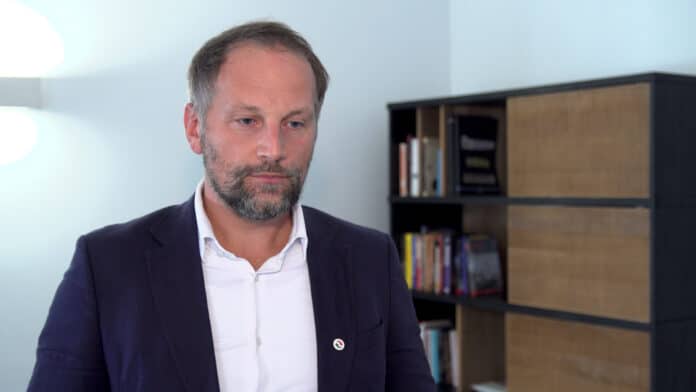The recycling industry in Poland is currently on the brink of bankruptcy. Over 70% of recyclers had to reduce their processing capacities this year, and 30% have already had to shut down their operations, warns the “Polish Recycling” Association. The problem lies in the low demand for their recycled plastic materials, due to the availability of cheap plastic from Russia, which, despite the embargo, continues to find its way into the Polish market. As a result, new plastics are continually introduced into circulation, and Poland already faces problems with their recovery and processing, leading to financial penalties of 2 billion PLN annually.
Last autumn, a significant portion of raw materials from Russia entered Poland through German intermediaries. Now, this is happening through other countries not covered by the embargo, from both the Middle East and Asian countries. These countries can sell either primary raw materials, i.e., new plastic, or finished products made from primary raw materials originating from Russia, explains Szymon Dziak-Czekan, President of the “Polish Recycling” Association.
Despite the embargo on Russian raw materials, which applies in almost all European countries, Russian plastic still reaches the Polish market. The “Polish Recycling” Association indicates that since the outbreak of the war in Ukraine, nearly 40% of enterprises that are members of this organization have encountered Russian plastic in the Polish market. It is a cheaper alternative to domestic raw material and consequently reduces the demand for Polish regranulate, a material resulting from the recycling process.
This situation represents unfair competition from Russian refineries, as recycling plants sell raw materials on the open market. If the Russian recycled raw material is cheaper than the Polish plastic regranulate, Polish plants cannot sell their materials. As a result, over half of the recycling plants had to shut down their machines, and over 70% of producers, recyclers, had to reduce their processing capacities this year, says Szymon Dziak-Czekan. The industry is in a difficult situation, and they hope that the introduction of EU regulations, which they are already two years behind on, will increase the demand for recycled materials.
The EU directive on extended producer responsibility (EPR) is a key factor here. According to the Polish draft of these regulations, by 2026, the minimum content of plastic recyclates should be 30%, and a decade later, as much as 65%. Implementing EPR will make it more advantageous for producers to use recycled plastics instead of primary plastics. 60% of respondents in the association’s survey see the new regulations as an opportunity to improve the situation in the industry.
While most EU countries strive to reduce plastic use and promote recycling, Poland is among the leaders in demand for primary plastics. According to data from Plastics Europe, in 2021, the demand for non-recycled plastics in the European Union was 50.3 million tonnes, of which Poland accounted for about 4 million tonnes of plastic, representing over 7.5% of the total demand of all EU countries. The “Plastics Review 2023 Recycling Market” report indicates that less than 5% of the domestic demand for plastics is covered by recovered materials, and the recycling rate, i.e., the recovery level, does not exceed 12%. This results in Poland incurring high fees and penalties for not meeting EU standards regarding the reduction of plastic introduced into the environment.
The Polish budget pays a so-called plastic tax of 6 million PLN daily, penalties for unprocessed plastic. According to the Ministry of Finance, this amounts to 2 billion PLN annually for unprocessed plastic. This is a huge burden on the state budget and Polish entrepreneurs who have to close production lines, says the President of the “Polish Recycling” Association. If recycling companies in Poland cease to exist, the state budget would pay several billion PLN in penalties annually for lack of recycling. This is a significant financial and environmental risk, as plastic recycling contributes to reducing waste landfilling. In a few years, we should no longer be sending anything to landfills.
The rate of the so-called plastic tax – the European tax on plastic – is currently 800 euros per ton of unrecycled packaging waste from plastics. Another issue is the environmental burden, as constantly introducing new plastic into the market instead of recyclate generates vast amounts of plastic waste. Experts stress that increasing demand for regranulate will positively impact the number of processed packages, improving the environmental situation. Implementing EPR would also positively affect the state budget by reducing the plastic tax.
The industry reported the problem of Russian plastic to the Ministry of Climate and Environment at the beginning of the year, but the letter remains unanswered. Meanwhile, the situation is becoming increasingly difficult.
In recent years, the situation in the recycling industry, as well as among other entrepreneurs, has become very difficult. COVID-19 and the war in Ukraine have reduced demand. The industry was also hit by very high energy prices, which constitute 25% of the production costs of recycled raw materials, and these prices doubled last year. As a result, 30% of plastic recyclers had to close down and cease their operations, says Szymon Dziak-Czekan. The recycling industry has been dynamically developing over the last 20 years, but now there is a real risk that penalties for unprocessed plastic, the plastic tax, and penalties for not meeting environmental standards will increase.


















